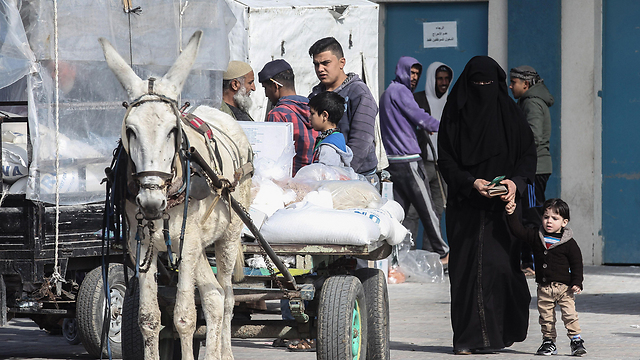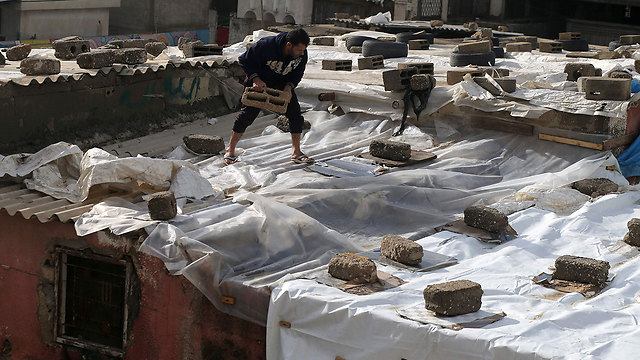

This isn’t the first time such an assessment has been formed. In April 2002, Israel launched Operation Defensive Shield. These are the exact two things that then-Defense Minister Binyamin Ben-Eliezer was afraid of: A collapse of the PA and a collapse of its arrangements with Israel.
It didn’t happen then, and it won’t happen now. The economic and security interests we share with the PA, combined with the road, water and electricity infrastructures, will prevent a real crisis—regardless of any political declarations.

In Gaza, on the other hand, we’re dealing with an opposite situation. The economic reality in the strip could lead to one of the two following scenarios: To a military conflict similar to the one that took place in 2014, or worse—to a combination between governmental chaos and a serious humanitarian crisis, which will drive thousands of desperate Gazans to trample the fence and start moving into Israel. This dangerous reality is also the result of five mistakes made by Israel.
In 2005, Israel disengaged from Gaza, but avoided making a diplomatic move that could have removed our responsibility for the strip. According to international law, a territory can fall into one of three status categories: A state (or part of a state); an internationally administered territory; or an occupied territory. As a result, Gaza is still defined as a territory occupied by Israel.
The second, ongoing mistake is that we have failed to formally promote the recognition that Gaza is a state for all intents and purposes, although it practically is.
The third mistake is that at the end of Operation Protective Edge, and in light of the international willingness to contribute to Gaza’s reconstruction, we were in favor of Egypt leading the move and the PA receiving the money, thereby letting two foxes guard the henhouse. If there’s anyone who isn’t interested in rebuilding Gaza under Hamas rule, it’s the Egyptians and Abbas.
The fourth mistake is that we prevented available solutions. Turkey, for example, offered to place a ship with a huge power-generator off the shores of Gaza, which would lead to a major increase in the strip’s electricity production. This solution could have been fully implemented within several weeks, but it wasn’t approved.
The fifth mistake is that we keep serving Abbas, who is waging a cynical economic war against Hamas, but the result is there is no electricity or water, there is a sewer overflow and the unemployment rate is growing.
We must make an immediate, fundamental change in our approach and adopt a seven-principle strategy: One, promote the recognition that Gaza is a state; two, recognize that the Gaza government will be determined by its residents (at this stage, Hamas is the legitimate ruler); three, insist that the donations for Gaza’s reconstruction are handed over to the Gaza government; four, stipulate that most of the donations will be used to build electricity, water and sewage infrastructures; five, agree on the construction of a seaport in Gaza; six, double Israel’s electricity and water supply to the strip until the infrastrctures are created; and seven, press the Egyptians to allow thousands of Gaza residents to cross through Egypt on their way to work in Arab countries.
Gaza is an enemy state. We should respond to every rocket and mortar fire and destroy the tunnels, but we can’t base our policy entirely on sticks without carrots, and we can’t rely on Abbas to provide Gaza with the carrots. Abbas’ announcement that he plans to cancel the PA’s agreements with Israel is an opportunity to shape an independent Israeli policy vis-à-vis Gaza and stop taking into account the Palestinian desire that Gaza and the West Bank will remain one political entity.
Major-General (res.) Giora Eiland is a former head of Israel's National Security Council.

















